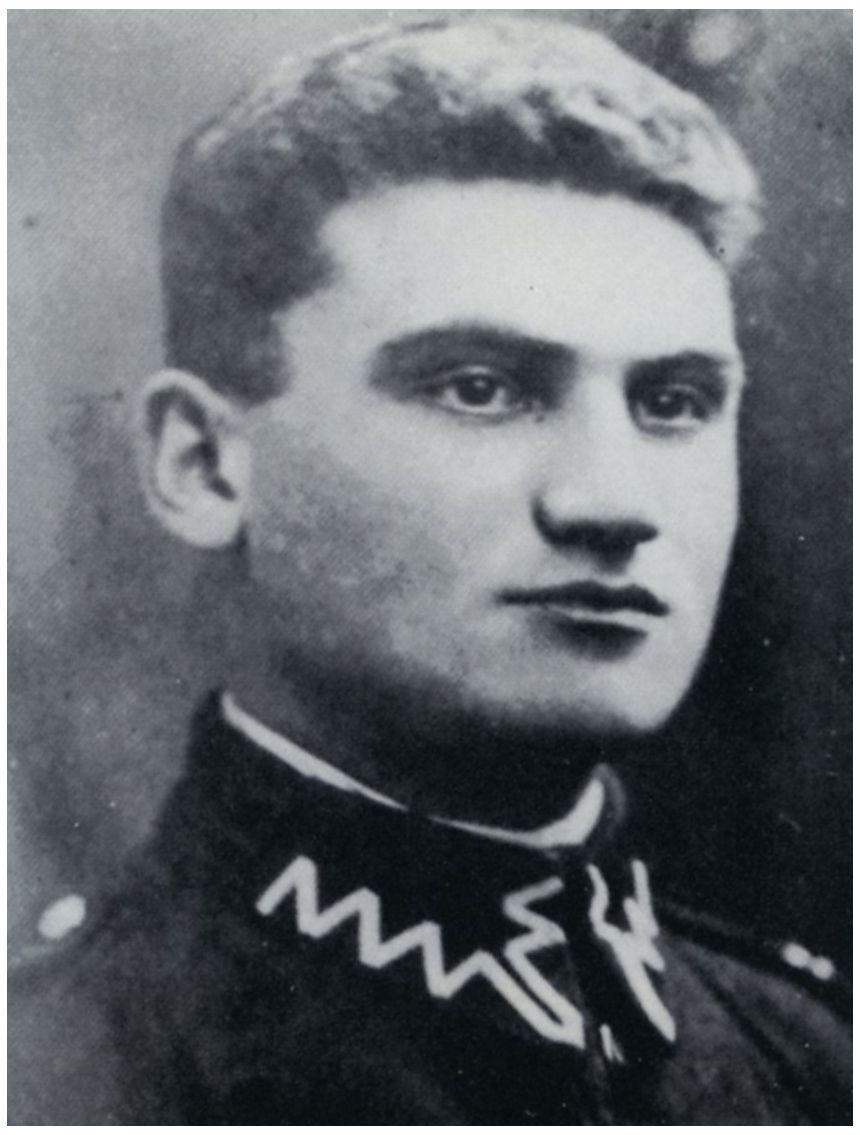
Tuvia Bielski was a Jewish resistance fighter who saved 1200 Jews by creating a haven for refugees deep in the Polish forest.
Born in 1906, Tuvia was one of twelve children in the only Jewish family in Stankiewicze, Poland, then part of the Russian Empire (modern-day Belarus.) His native language was Yiddish, and he also spoke Polish and German. His natural facility with languages led to Tuvia serving as a child interpreter for the German army during their occupation of Stankevich during World War I. In 1927 Tuvia was recruited into the Polish Army and became a corporal before completing his military service.
After leaving the army, Tuvia returned to his hometown, now part of the Soviet Union. He married and operated a mill and general store, living a relatively quiet life until 1941, when Germany invaded the Soviet Union. The Germans created a ghetto in the nearby town of Nowogrodek, and forced local Jews out of their homes and into the squalid ghetto. In the chaos, Tuvia and his younger brothers Zus and Asael managed to escape into the forest and vowed they would never be captured by the Germans. Meanwhile, in the Nowogrodek ghetto German officers were massacring Jews for sport, including Tuvia’s parents and two brothers.
Deep in the Polish forest, Tuvia created a training base for resistance fighters which also became a safe haven for Jews fleeing from the Germans. Other Jews who’d managed to avoid or escape the ghetto joined the Bielskis in their secret forest hideout. The band of militants became known as the Bielski otriad (brigade). By the summer 1943 there were seven hundred Jews in the Naliboki forest hideout, a mix of resistance fighters and terrified refugees.
At first the Bielski otriad conducted sabotage actions against the Germans such as burning crops so the soldiers couldn’t eat, and executing German collaborators. But as time went on, the Bielski group’s only goal became survival, for themselves and as many other Jews as they could save. Tuvia turned the humble forest haven into an organized community. All the Jews who found refuge there contributed resources and expertise in different areas. Under Tuvia’s strong leadership, the secret forest hideout grew into something resembling a tiny village, with a hospital, school, manufacturing facility, butcher shop, tailor, and even a house band featuring prominent Jewish musicians. Tuvia reached out to other partisan groups to trade food, weapons and other supplies.
In the beginning, the forest group consisted mostly of young men, those brave enough to escape the ghetto and strong enough to engage in guerrilla warfare. By 1944, most of the Jews finding refuge in the forest were women, children, and the sick and aged. The Bielski group was perhaps the most impactful Jewish resistance effort during World War II, saving the lives of over 1200 Jews.
After the war Tuvia moved to Israel and ultimately immigrated to New York, where he operated a trucking business with two brothers who’d survived the war. He died and was buried in New York in 1987, but the next year his remains were exhumed and buried in Jerusalem, where he was given a state funeral with full military honors.
Twenty years later, in 1988, Daniel Craig portrayed Tuvia in the film Defiance, a critical and commercial hit about the Bielski group.
For creating a community of fighters and survivors deep in the forest and saving 1200 lives, we honor Tuvia Bielski as this week’s Thursday Hero.
Get the best of Accidental Talmudist in your inbox: sign up for our weekly newsletter.